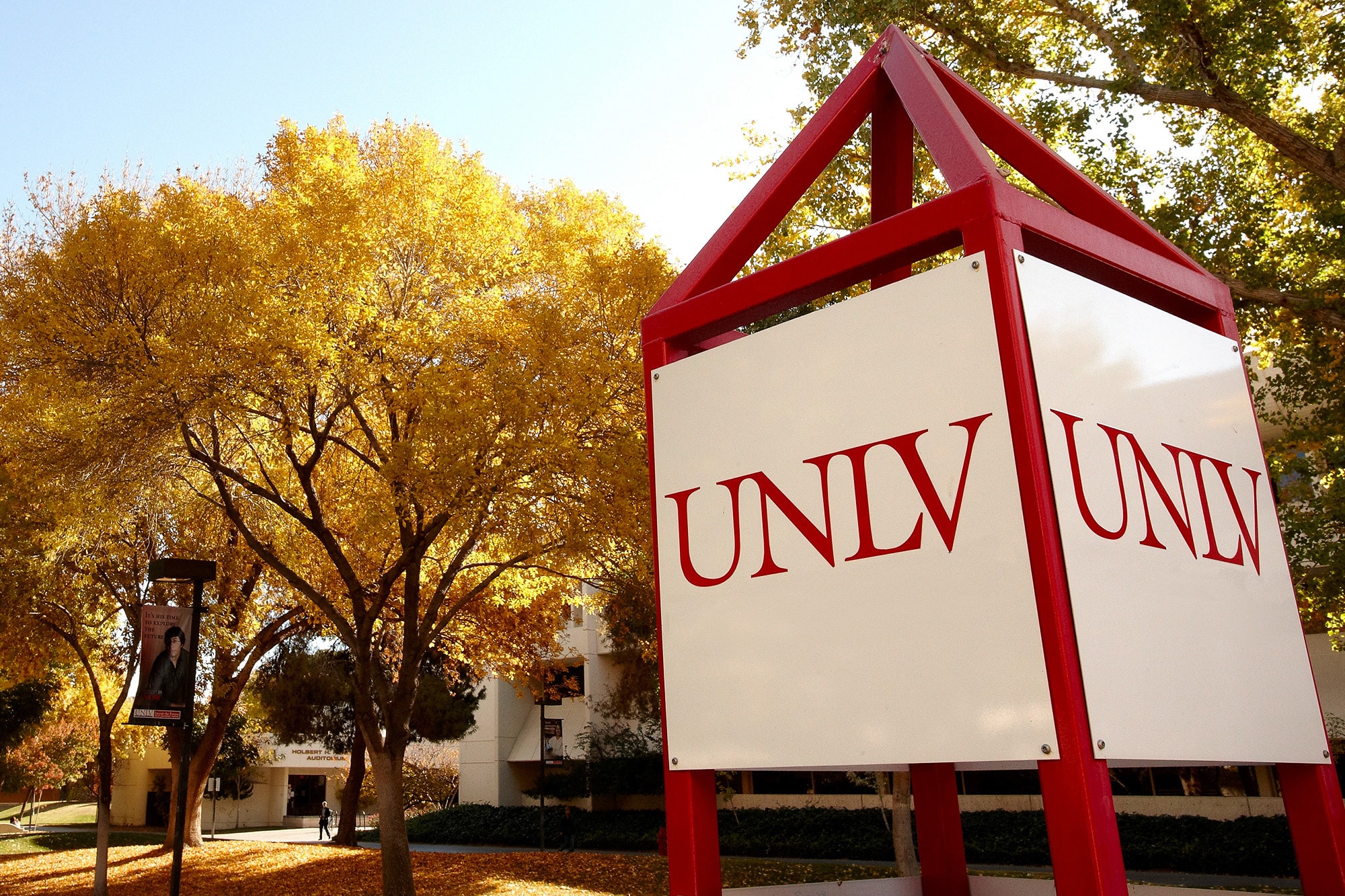By the time this year's incoming freshmen are ready to graduate, faculty and students in the William F. Harrah College of Hotel Administration could be experimenting in new labs, testing products for major corporations, and getting real-world experience right here on campus.
In September, the Harrah's Foundation announced a gift of $30 million for INNovation Village, a proposed academic and research facility with a hotel and convention center. The gift provides nearly half the funds needed for the academic building, with $25 million going toward construction costs and $5 million for related research, recruitment, and training initiatives. It is the largest corporate gift in UNLV history.
Stuart Mann, dean of the college, said the project will guarantee UNLV remains at the top in hospitality education and research. "In the hospitality industry, our lab is the real world," he said, "so bringing a hotel and conference center to campus will help us expand our industry research." The facility will be located at the corner of Flamingo Road and Swenson Street. At full buildout, the complex will include:
A 100,000-square-foot academic building with classroom space, offices, food and nutrition science labs, teaching kitchens, a gaming laboratory, and dedicated interdisciplinary research space.
A fully functioning hotel with 200-300 rooms.
An executive conference center.
The project will also include a renovation of the existing 35,000-square-foot Stan Fulton Building, which houses the International Gaming Institute. Mann hopes to break ground on INNovation Village in 2009 or 2010.
ALTHOUGH INNOVATION VILLAGE is still conceptual, faculty have no trouble envisioning the possibilities. We asked some of them what the facility could mean to their research, their students, and the hotel industry at large.
Cheri Young
HOTEL MANAGEMENT PROFESSOR
Building a hotel right on campus seems a natural way for students to learn the how-to of hospitality. Cheri Young says it can also help them learn about human nature in the work environment.
Young studies organizational behavior -- how people think, feel, and act -- within the hospitality industry. INNovation Village's labs could help her show students why change isn't always well-received. "It is very difficult for young students to understand why employees might resist a supposed improvement," Young said. "By having students involved in the testing of these new technologies, products, and processes, the intersection between man and machine becomes very real to them."
Having a hotel and lab space in the same complex would be a real plus, Young said, especially to attract companies that want to float some trial balloons. ";So often managers generate what they think are great ideas, and they do so without considering the impact on -- or reaction of -- the employees. My hope is that we would take a holistic approach to any kind of laboratory testing."
Curtis Love
TOURISM AND CONVENTION ADMINISTRATION PROFESSOR
INNovation Village is envisioned as a state-of-the-art academic campus, but Love sees benefits that reach beyond the lab and classroom.
Hotel college faculty and students are now split between Beam Hall and the Stan Fulton Building. Love looks forward to having a unified facility for more interaction among the disciplines. "Having a complex like that will give students a place to network," said Love, who is also interim head of the tourism and convention department. "It will be like getting the family back together."
Love experienced the benefits of having a hotel on campus when he taught at the University of Alabama. INNovation Village's proposed hotel and convention center would provide much-needed space for campus meetings and events, said Love, as well as a new revenue stream for the university.
Christine Bergman
FOOD AND BEVERAGE MANAGEMENT PROFESSOR
Food scientists such as Christine Bergman help improve the process of getting food from farm to market. Her research takes place largely in the lab -- but she doesn't have one of her own at UNLV. "I spent the summer at a lab in Texas, away from my family. I really, really don't want to do that anymore," said Bergman, who came to UNLV three years ago from the U.S. Department of Agriculture.
A food science lab at INNovation Village would fulfill her department's desire to significantly expand research capabilities, Bergman said, to meet the demands of consumers who want to know what they're eating and how it's processed.
A sophisticated sensory evaluation lab would complement class activities and attract corporate attention, too. "That would give us the opportunity to interact with big food companies," Bergman said. "We could test things for them, and we could feed people in a controlled environment and test their responses."
Sensory labs aren't just for food, either. A hotel could get virtually anything evaluated, from the texture of bedsheets to the taste of breakfast. "INNovation Village offers a real hope for connection," Bergman said. "We have all of these incredibly innovative food operations in town, and we need to be involved with them. We're teaching the people who are going to work for them."



